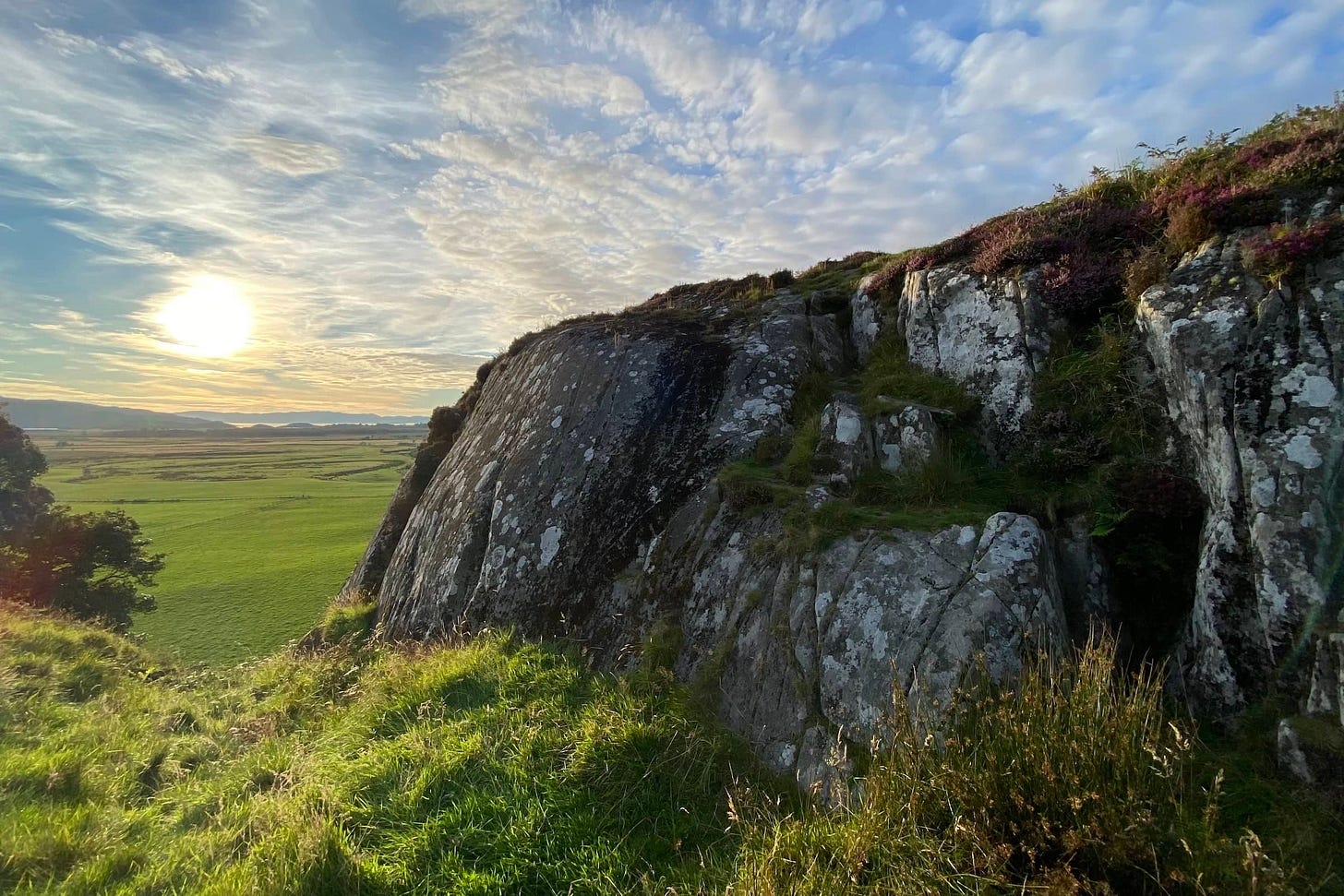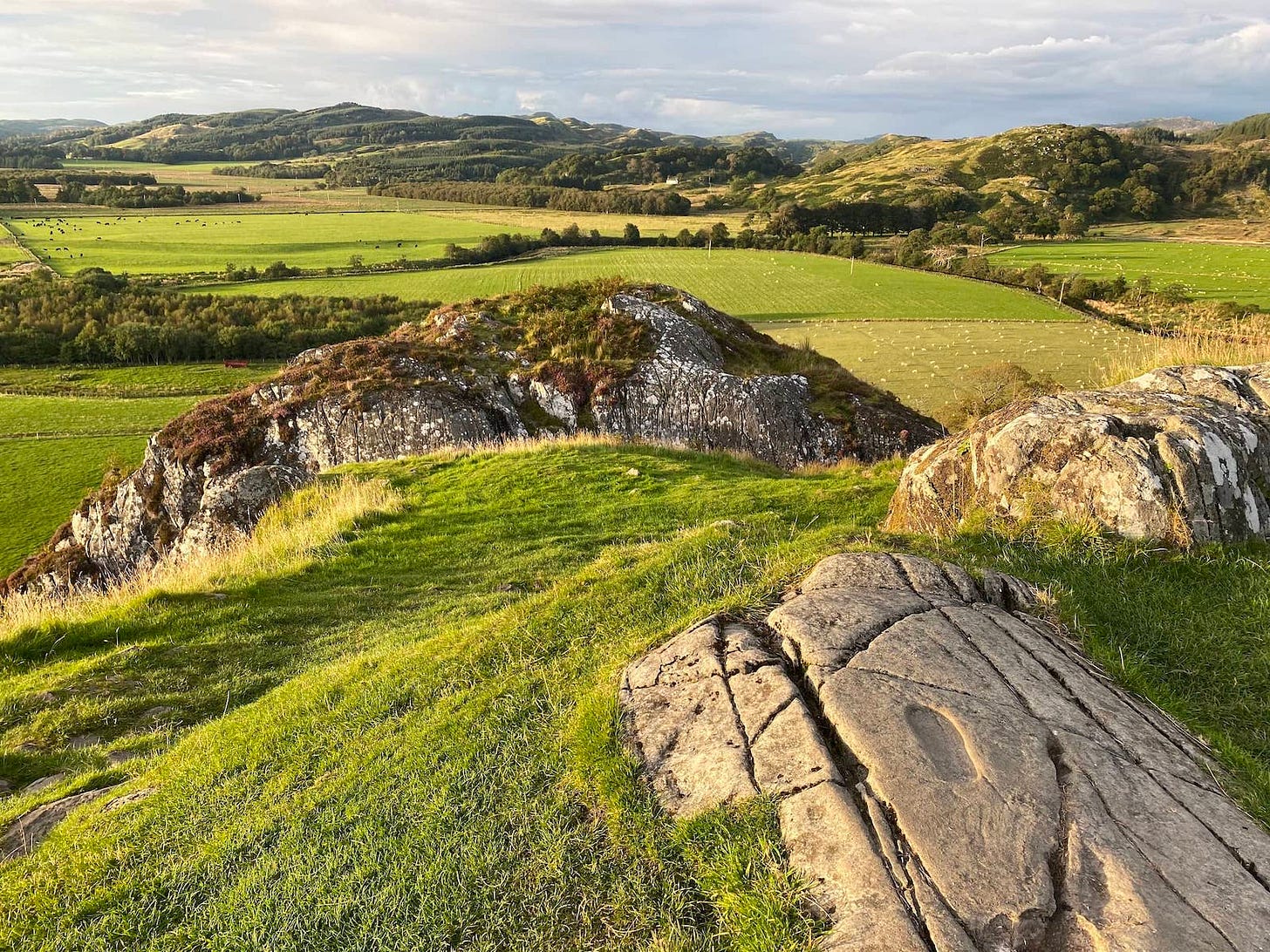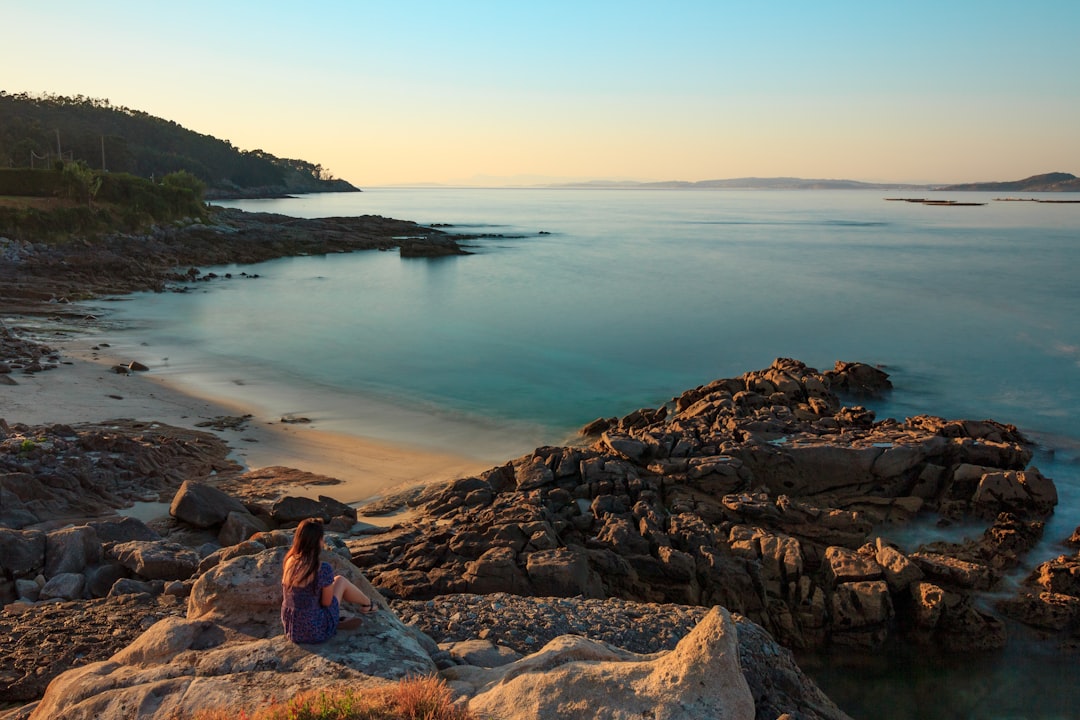What if the Land Chose the Leaders?
A new and ancient way of stewardship, where the well-being of the leader is intertwined with the thriving of the entire ecosystem
You find yourself in the early 6th century AD at the hillfort of Dunnad, the seat of the ancient kingdom of Dál Riata.
On this misty morning, folk from all over western Scotland have gathered around the base of Dunnad. You feel a buzz of excitement rising even before the sun does ~ in the tentative mingling of at least four clans, in the ferns unfurling to greet the dawn, and in the symphony of birds welcoming all to this special day.
Today a new Ard Rí (high king) is to be crowned … or will he? The ruiri (lower kings) and their people have selected this man as their next leader ~ the one they feel is the most honorable and most capable of providing for the safety and justice for all in the realm.
The ultimate decision, though, is not up to them. Everyone knows the real king-maker is the Goddess of the land.
At the peak of anticipation, the would-be king appears atop Dunnad. The crowd falls silent as a raven’s caw pierces the air, announcing the arrival of this moment of destiny.
Will his foot magically fit in the depression carved in the stone? Will the Goddess deem him worthy and sing out her approval for all to witness?
If the Goddess says Yes, this will be a day of feasting and celebration, including ritual and ceremony more akin to a wedding than a coronation. And rightly so, since the one who is chosen as Ard Rí takes solemn vows to love, honor and protect the land and all beings within the realm.
In this time and place, the role of king or queen was one of stewardship. Sourced in a genuine devotion to serving the people and Nature herself, their fate was deeply intertwined with the fate of those they served.
It was well known that the king’s health and wealth were intimately linked with the fertility of the land and the well-being of the entire kingdom. If he was injured or fell seriously ill, he would readily relinquish his crown to ensure that the land and the people would continue to thrive.
These people were known as the kings and queens of the Scots, never of Scotland ~ chosen to represent the people, while in a relationship of symbiotic union with the land rather than dominion over her.
Story of Separation
How have we moved so far from this ancient way of leading through intimate relationship with nature and each other?
We need only look back 1500 years or so to see how the current story of separation and scarcity entered the scene.
Christianity {and other religions} became perverted into a story that told us we were separate from our divinity. The Crusades {and other holy wars} tortured us until we said Yes to their story.
The more we lived into that story, the more we experienced scarcity and separation in the world around us ~ which reinforced the story that we needed to compete and sacrifice to survive.
As that story unfolded, government and religious leaders became rulers, dictators and conquerors ~ those who wielded the most power over people and the land, forcing them to bend to their will to serve their own needs for ever more power and wealth. All of which served to amplify the story ~ and the lived experience ~ of separation and scarcity.
View from the Roundtable
The Story of Separation has reached its expiration date. When we remember that the reality we’ve been experiencing is largely an illusion generated by the powerful telling of a story, we can reclaim our ability to consciously choose the story we live into going forward.
The Roundtable is my metaphor for the Story of Wholeness ~ a story rooted in nature’s principles of harmony and mutual thriving in interconnected ecosystems.
From the Roundtable, we can see what the ancient Dál Riata knew:
Leaders are those who contribute their unique gifts and talents in service of their ecosystem, aware that they truly prosper only to the extent that everyone within the ecosystem is prospering ~ and vice versa.
The 6th century Dál Riata included a man named Artúr mac Áedán, son of king Áedán mac Gabráin and great-great grandson of Fergus Mór, the first king of Scots in what is now known as Scotland.
From my own direct experiences and powerful synchronicities on the hillfort of Dunadd and the land in western Scotland, I strongly suspect that Artúr mac Áedán is the subject of the timeless legends of Arthur and the Knights of the Roundtable. This suspicion was affirmed by two nonfiction books that found me months later.
Although Artúr was never crowned king, he was so well-respected that the kings of the surrounding lands repeatedly followed him into battle ~ a king of kings, the Ard Rí in all but the title. A servant-leader loved and followed by many.
The story of our thriving future
While it is important to remember the qualities of stewardship and connection that we experienced in the days before the Story of Separation, we are not simply turning back the clock and returning to the ancient story.
As creator beings in a continually evolving civilization, we are alchemizing all the stories that have come before into an entirely new one, expanding the bounds of what is possible for humanity and Earth.
“Leaders don’t create followers, they create more leaders.” ~ Tom Peters
The new story for the emerging age is not one of leaders and followers. It is one where every seat at the Roundtable is filled by a leader in their own right ~ each a steward contributing his or her unique gifts and talents, devoted to the well-being of every other member, coming together in synergy as part of a greater whole.
Once and future Camelot
I’m hearing the whispers from Arthur in a line from my mother’s favorite musical:
Don’t let it be forgot, that once there was a spot, for one brief, shining moment, that was known as Camelot.
And the echo reverberating through time in the words of another leader who carried the thread of Camelot forward: “Ask not what your country can do for you - ask what you can do for your country."
As we stir the cauldron of the past stories, let’s be still long enough to listen, to hear the whispers of the stories from the future rippling into our present.
What is it that the trees, the stones, and the children of future generations are asking of us?
What are the stories they will be sharing, with awe and appreciation, about the ways we are living, leading and creating based on the stories we’re choosing to tell today?
What is the vision you are bringing to your seat at the Roundtable? What is uniquely yours to do? And how is that contributing to the shared vision at the center of the Roundtable?
It matters not whether you have answers yet ~ what makes all the difference is that you are asking the questions….
Thank you for reading & engaging!
Holly McCann
NEW INTERVIEW!
🎙️Understanding Leadership with Holly McCann
Welcome to another episode of Twice 5 Miles Radio. I'm your host, James Navé. Remember when a conversation sparked your imagination? That happened when I met Holly McCann at a literary reading at Malaprop's Bookstore in Asheville, North Carolina. As soon as she mentioned she was rethinking leadership in today'…







Fabulous Holly. So clear 💜💃🥰